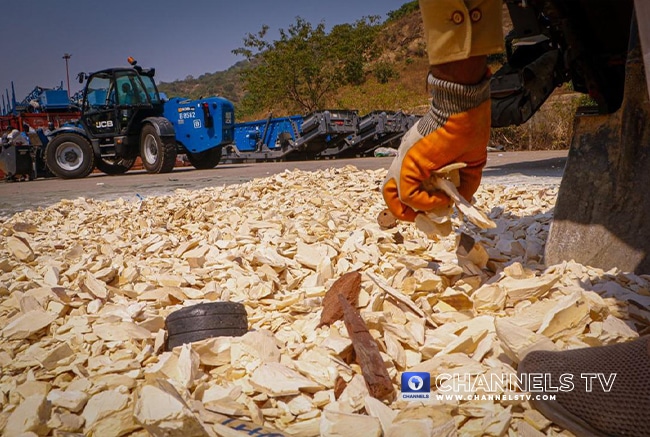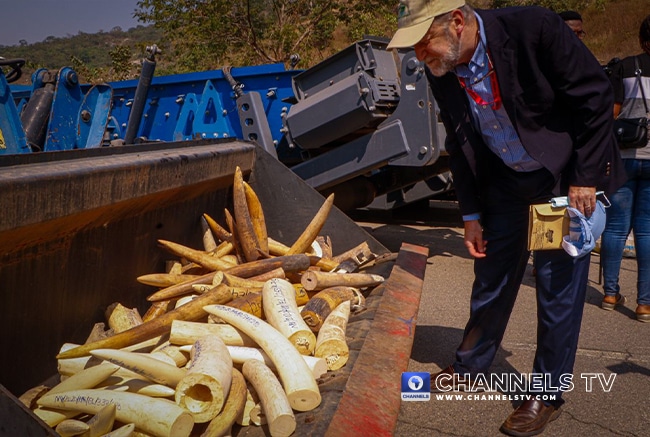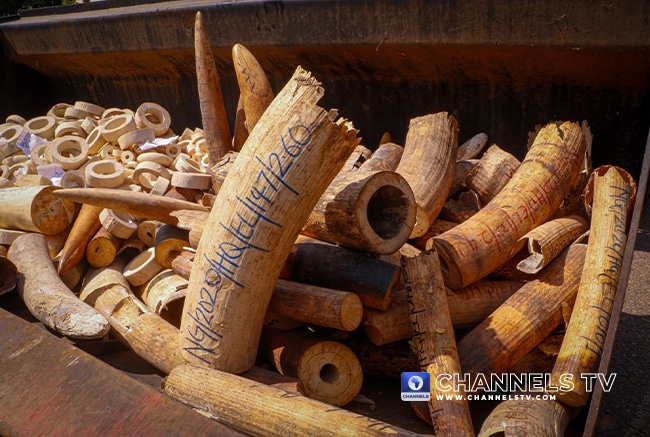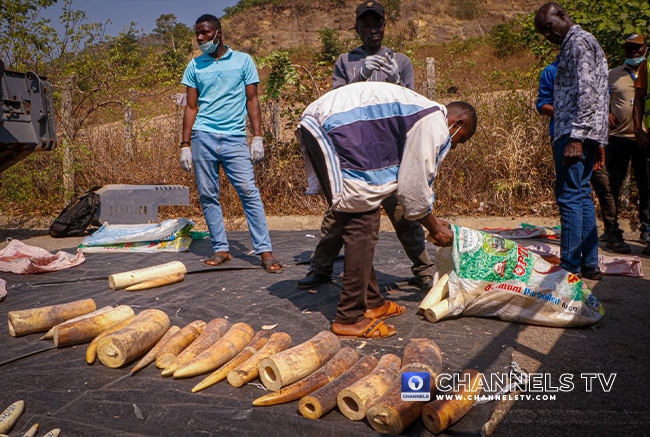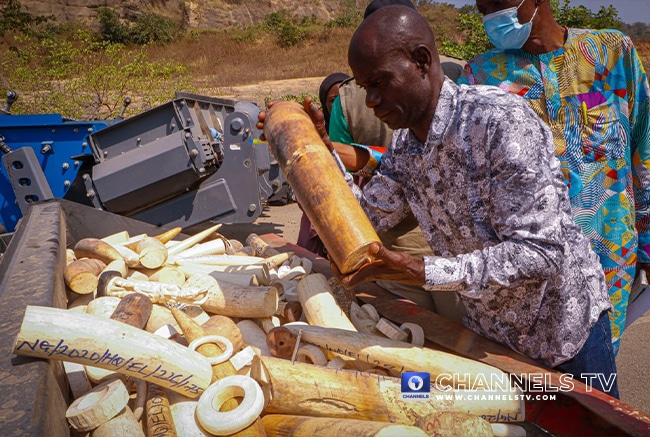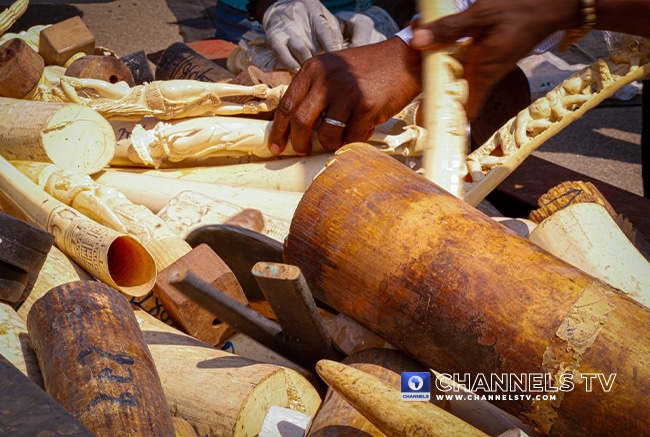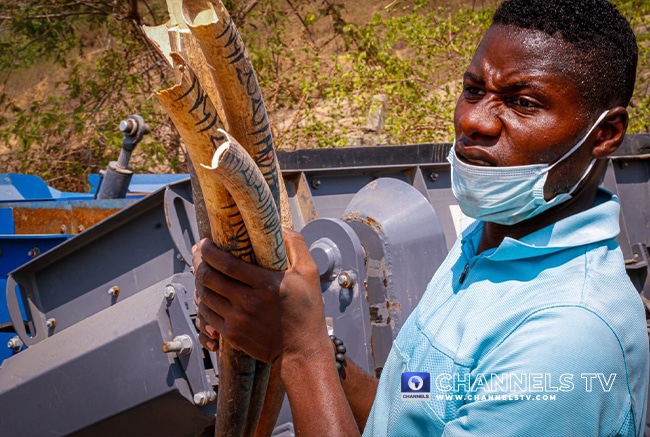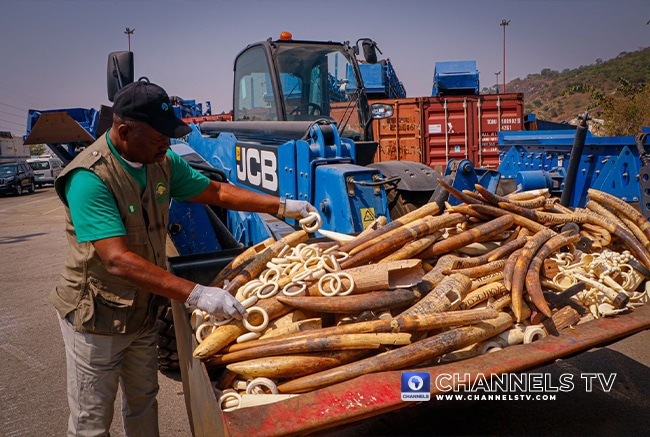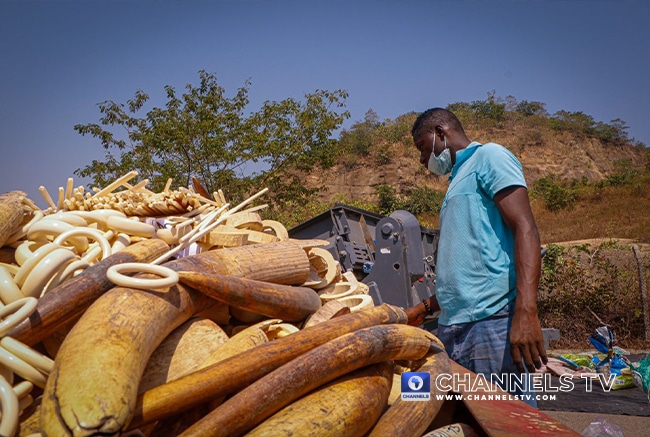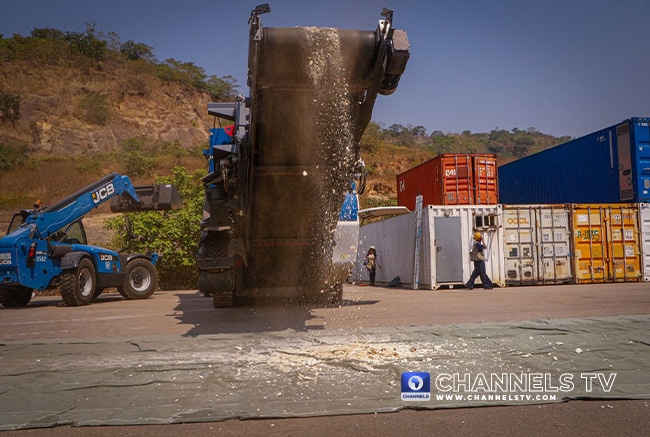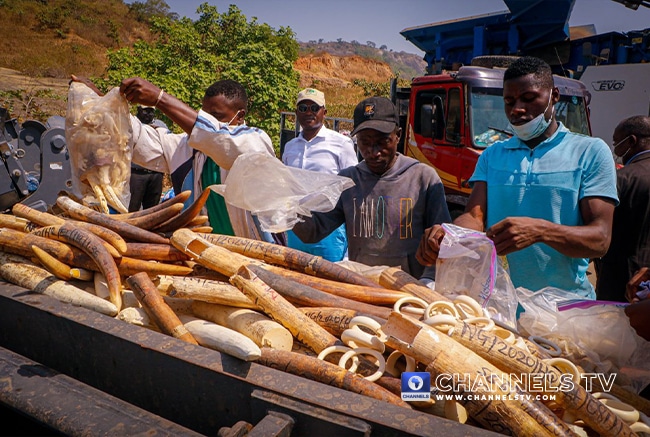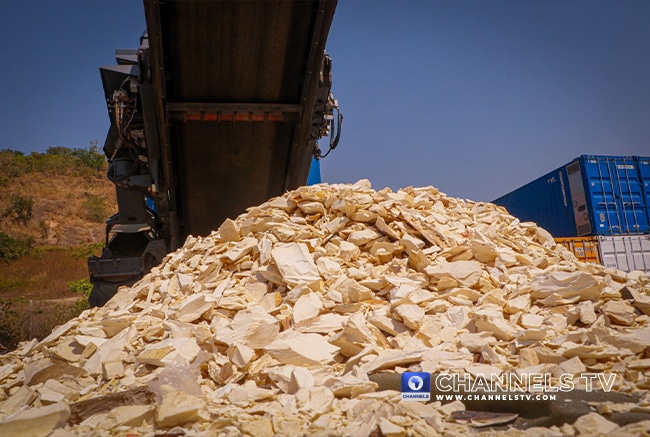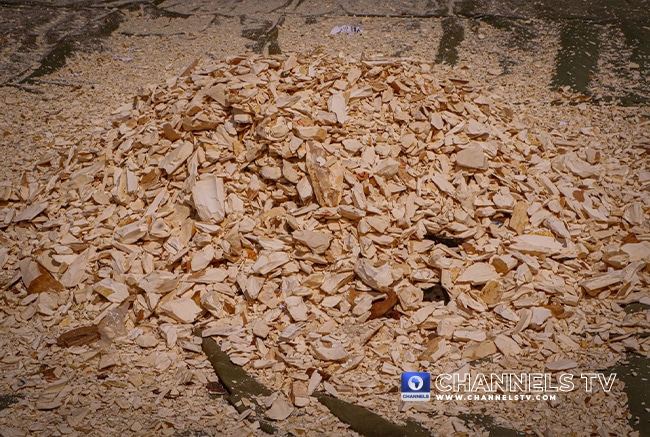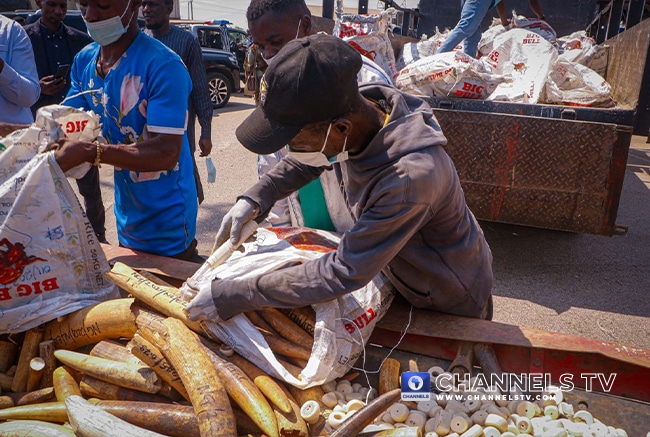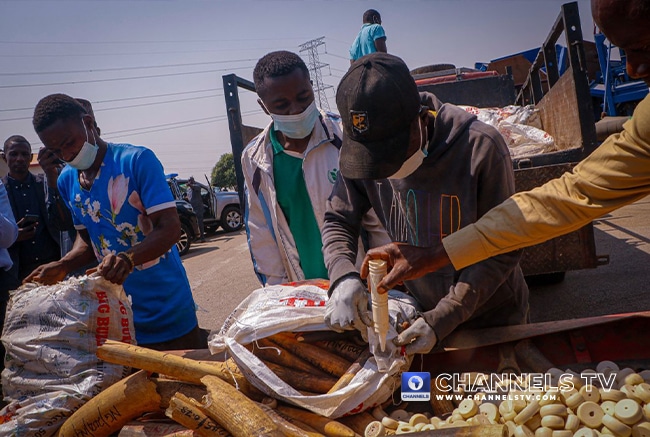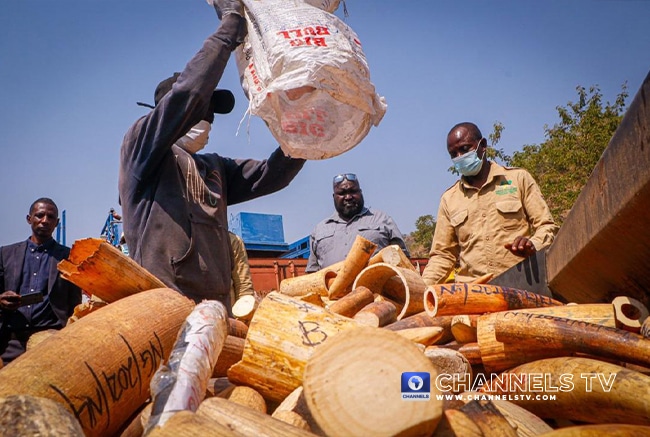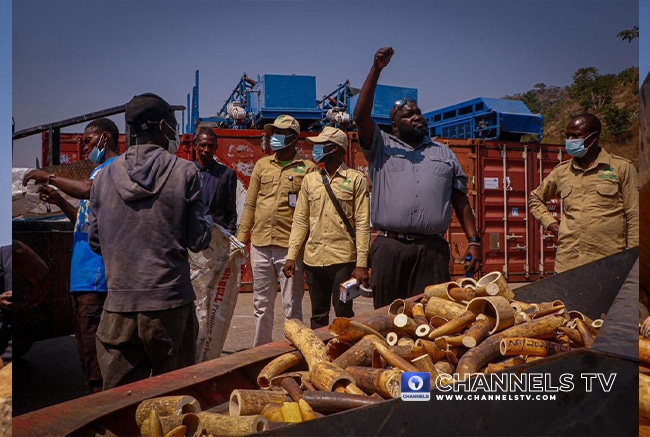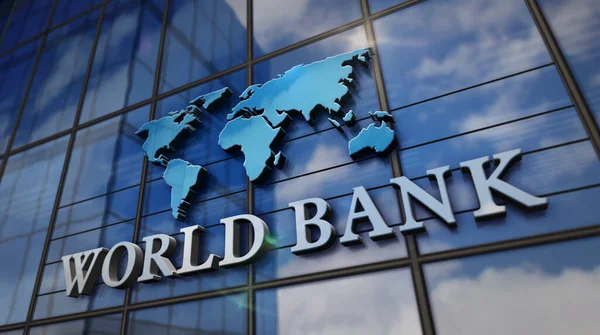The Economic and Financial Crimes Commission has seized the passports of the suspended Minister of Humanitarian Affairs and Poverty Alleviation, Betta Edu, and her predecessor, Sadiya Umar-Farouq, over the ongoing investigations into scandals in the ministry.
Edu, who arrived at the EFCC headquarters, Abuja at 10am on Tuesday, was still being quizzed by the commission’s investigators as of the time of filing this report at 7pm.
As the EFCC interrogated the suspended minister over the N44bn fraud uncovered in the ministry, it was learnt that managing directors of three commercial banks were also questioned on Tuesday over the fraud.
The scandal involving Edu burst open after a leaked memo revealed that the suspended minister directed the Accountant-General of the Federation, Oluwatoyin Madein, to transfer N585m to a private account owned by one Oniyelu Bridget, who the ministry claimed currently serves as the Project Accountant, Grants for Vulnerable Groups.
The minister had claimed that the N585m payment was meant for vulnerable groups in Akwa Ibom, Cross River, Ogun, and Lagos states, describing the allegations against her as baseless.
The Media Assistant to the minister, Rasheed Olarewaju, said in a statement that it was legal within the civil service for such payments to be made into private accounts of staff members, especially project accountants.
In deference to public pressure, the President on Monday suspended Edu and directed her to hand over to the permanent secretary in the ministry.
On Tuesday, Edu honoured the EFCC invitation and she was subjected to marathon interrogation by investigators.
It was learnt that her personal and official passports were taken away by detectives and she was barred from travelling out of the country.
Passports seized
Her predecessor, Umar-Farouq, had been quizzed by investigators for 12 hours on Monday in connection with the probe into the N37.1bn allegedly laundered during her tenure in office, through a contractor, James Okwete.
The ex-minister’s passport was also seized as part of her bail conditions before she was subsequently released late Monday night.
An impeccable EFCC source said the passports of Edu and the former minister were seized to deter them from fleeing the country while the investigation subsists.
“The commission has seized the passports of the two ministers, Sadiya Shehu and Betta Edu. We have also seized Mrs Halima Shehu’s passport pending the conclusion of investigations. The commission does not want to risk having any of them leave the country while they still have questions to answer,” the source said.
The lawyer to the former minister, Dipo Okpeseyi, SAN, could not be reached for comment on his client’s ordeal as he did not respond to phone calls. He also did not respond to a message seeking his comment. Also, efforts to get Edu did not succeed
The PUNCH could not immediately confirm whether she was released on Tuesday night.
Apart from Edu, Ms Halima Shehu, the National Coordinator and CEO of the National Social Investment Programme, an agency under the humanitarian ministry, had been similarly suspended indefinitely over alleged financial misappropriation.
Shehu had been arrested and questioned by the EFCC in connection with the movement of N44bn from the NSIPA account to some suspicious private and corporate accounts within the last four days in December 2023.
The huge sum was reportedly moved without presidential approval.
As part of her bail conditions, Shehu has been reporting to the EFCC office every day to assist investigators.
Before her appointment, Shehu worked as the National Coordinator of the Conditional Cash Transfer Programme under former President Muhammadu Buhari.
Top EFCC sources confirmed the probe of the senior bank executives to our correspondent on Tuesday.
An impeccable EFCC source revealed that the banks were deeply involved in the fraud under investigation.
The source revealed, “The MDs of the banks were grilled by our interrogators at the EFCC headquarters on Tuesday. They were invited and are being probed in connection with the uncovered N44bn fraud and the N585m involving Halima Shehu and Betta Edu.
“The suspended minister and the coordinator have both given new revelations during their interrogations, and the investigation is still ongoing.’’
Giving his opinion on the unfolding scandals, the 2023 presidential candidate of the Peoples Democratic Party, former Vice President Atiku Abubakar, accused the All Progressives Congress of using the Ministry of Humanitarian Affairs and poverty alleviation as a cash cow for successive governments.
Atiku said the suspension of the minister, Edu, was commendable, but not enough.
Atiku in a statement by his Special Assistant, Public Communication, Phrank Shaibu, Tuesday, described it as unfortunate that a programme that was designed to lift over 100 million Nigerians out of extreme poverty had allegedly become a cash cow for successive APC governments.
He said, “While Tinubu deserves commendation for suspending Edu, we believe this is a belated move. Firstly, he had no business appointing her as a minister of such a sensitive ministry in the first place. Tinubu put politics ahead of competence, hence this scandal.
“What experience did Betta have in the development sector? How was Imaan Ibrahim, with her wealth of experience, overlooked? How did the Chief of Staff to the President, Femi Gbajabiamila, stand as Betta Edu’s referee during her clearance at the Senate?”
Atiku who called for reform of the Ministry, alleged that it was not only Edu that was involved in the transactions.
“Betta Edu should not be the fall guy. Others who have remotely and wickedly benefitted from money that was meant for poor Nigerians ought to be fished out, probed, and prosecuted too. It is demonic and tendentiously wicked to steal in the name of the poor, he stated.
The statement read in part, “There is a need for the government to reform the humanitarian affairs ministry and other interventionist programmes that had become an ATM and POS for those in power.
“He noted that the fact that the previous Humanitarian Affairs Minister, Sadiya Umar Farouq, was also being probed for N37bn fraud was evidence that immediate and urgent actions need to be taken to reform the ministry.
“Even during the COVID-19 lockdown, Umar-Farouq continued to implement the school feeding programme. She ridiculously claimed that the food would be delivered to the students at home since schools were shut.
“Today, Betta Edu claims that over three million households got N20,000 each during the Yuletide. Sadly, there is no evidence of millions of Nigerians getting such money. This shows that money has just been going into private pockets.
“The scandal that we are contending with is not about Betta Edu, nor about Halima Shehu, or any other rogue element for that matter. It is about a problem of systemic corruption through which the APC continues to bleed the treasury, ironically, asphyxiating the poor and vulnerable segment of the country, all in the name of caring for them.
“The APC has weaponized poverty and hunger to control the minds of the vulnerable masses, and it is even worse that they have devised a method to use poverty as an instrument of official corruption.”
APC slams Atiku
Reacting, the APC Director of Publicity, Bala Ibrahim, cautioned the former vice president against jumping to conclusions, noting that Edu is not guilty until the allegations against her are proven.
He berated Atiku and the PDP, saying they faced more corrupt allegations than Edu and the APC.
Ibrahim stated, “Atiku, from his record, it was said somewhere that he read elementary law. And if indeed he read law at whatever level, even if it is a kindergarten level, ought to know that the presumption of the law on an accused is that he is innocent until proven guilty.’’
The APC official noted that the way President Tinubu responded to the allegations showed that ‘’he is a president that listens to the yearnings of Nigeria and that will act by the provision of the law.’’
He added, “At the stage, we are now, a thorough investigation has been directed; it will be wrong for anyone to jump to the conclusion that there is theft or that the Ministry of Humanitarian Affairs is a conduit that is made to siphon public funds for APC governments.
“If it is, the investigations will not have been directed, and the government would not have acted swiftly and appropriately it did.”
On the allegation that the APC is a corrupt party, Ibrahim clarified, “If you say because a few people in the APC who are accused of wrongdoing are to limit wrongdoings to the APC, then, one is not being fair to the composition of parties.”
He continued, “In Nigeria, and I am sure like in other countries of the world, there is no party that is composed of saints, there is no party that can beat its chest and say its members are infallible.
“What is important is to see that the party they belong to has the willingness, the desire, and the courage to call them to order when they go wrong. The APC and the President of the country, Senator Bola Ahmed Tinubu, have demonstrated that willingness.
“If on the basis of allegations you will jump to conclusion, the PDP will not be in a position to talk because ever since the formation of the party in Nigeria, there has not been any party that has faced allegations of corruption like the PDP.”
In a related development, the PDP has asked the President to suspend and investigate the Minister of Interior, Olubunmi Tunji-Ojo over his alleged involvement in a N438m contract awarded by Edu.
Tunji-Ojo had denied involvement in the consultancy contract awarded to New Planet Project Limited, a company in which he was a former director.
The minister explained that he resigned as a director of the firm in 2019.
But the opposition party in a statement by its National Publicity Secretary, Debo Ologunagba, Tuesday asked the President to take immediate action “to protect the resources meant for the wellbeing of poor Nigerians from further plundering by suspending the Interior minister over the alleged fraud and hand him over to the EFCC for investigation like his suspended counterpart.’’
Interior minister
Meanwhile, Tunji-Ojo has dismissed reports claiming he was summoned to the Presidential Villa over allegations of involvement in the humanitarian ministry scandal.
Rather, the minister said he was at the State House to brief President Tinubu on the outcome of the recently launched online passport portal.
Tunde Alao, the media aide to the minister, in a statement on Tuesday, said Tunji-Ojo’s visit to Aso Rock was to keep an earlier scheduled meeting with the president, stressing that he was not summoned as speculated.
“The minister only visited Aso Rock to keep an earlier scheduled meeting with President Tinubu. The sensational social media headline that says the minister was summoned to Aso Rock was quite misleading and should be discountenanced by Nigerians,’’ he said.
Also, a former governor of Kano State, Ibrahim Shekarau, has commended President Bola Tinubu on the suspension of the Minister of Humanitarian Affairs and Poverty Alleviation, Betta Edu.
Shekarau commended Tinubu in an interview on Channels Television on Tuesday.
[Punch]

